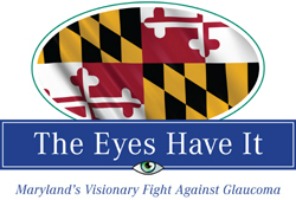The choice to earn service hours while helping people keep their sight can be as clear as 20/20 vision. Look no further than The Polakoff Foundation’s The Eyes Have It Program (EHIP).
Started in 2006 by Sam and Denise Polakoff, the parents of Leah Polakoff who graduated in ’11, The Polakoff Foundation is a non-profit corporation helping fight glaucoma. According to the Polakoff Foundation website, this foundation helps to “raise funds, create awareness and make services available to glaucoma patients and those who may be at risk.”
Glaucoma is a set of eye diseases that damage the optic nerve. The optic nerve connects the eye to the brain which transfers the images seen and takes them to the brain to be interpreted. Damage of the optic nerve can result in permanent blindness, and it almost always does not have symptoms.
Diagnosed with glaucoma at age 27, Sam Polakoff, co-creator of The Polakoff Foundation, is determined to help spread the message of the effects of glaucoma.
“Glaucoma is like high blood pressure 20 years ago. People didn’t realize it could kill them. Glaucoma will rob people of their eyesight, and, by the time they go blind, there’s nothing they can do to reverse it,” Sam Polakoff said.
Sam Polakoff not only wants to raise funds and spread the message of glaucoma, but he also wants to provide services to help prevent glaucoma from developing in high-risk groups. That is how The Eyes Have It Program began.
“In 2007, we wrote a letter to the Baltimore mayor, Sheila Dixon, about glaucoma. Because the group hit the hardest with it are African Americans and Baltimore City has a predominantly African American population, we thought it was a good place to start a screening program,” Sam Polakoff said.
Mayor Dixon liked the idea, so The Polakoff Foundation partnered with the Maryland Society of Sight and the Glaucoma Research Foundation in San Francisco to begin EHIP in Maryland in 2008. EHIP offers free screenings to the Baltimore metropolitan area as well as educational material for diagnosed or at-risk patients.
The Polakoff Foundation depends on an all-volunteer staff of doctors, nurses, and other people to support their efforts.
“We are always looking for volunteers. It is fun for students and helps with the credits [service hours] they need. We will sign the forms for students to receive service hours,” Ted Dixon, primary contact for nonmedical volunteers, said.
Students who volunteer would greet patients being tested, help fill out their paperwork, learn how to work the machines, and do screenings. Anyone can learn how to do the screenings, and “it only takes about 30 minutes to teach someone how to volunteer,” Sam Polakoff said.
Leah Polakoff was a volunteer for EHIP and has experienced the responsibilities first-hand.
“Every screening I worked at, I was responsible for checking the patients in and performing visual field tests. I had to learn how to use the machines to be able to test the patient’s vision. I also had to learn how to read the test results, which would determine which patients go on to see the doctor for further examination,” Leah Polakoff said.
The next volunteer opportunity coming up is Jan. 18 from 4:30 to 6:30 p.m. at Krieger Eye Institute at Sinai Hospital in Baltimore. Other free screenings where students can volunteer will be held at Bon Secours Medical Center, Harbor Hospital, and Good Samaritan Hospital.
“I loved volunteering with The Eyes Have It Program because it was a chance for me to bond with my parents and gain service hours for school. Overall I earned about 15 to 20 of my service hours through this program,” Leah Polakoff said.
Students should take advantage of volunteering with EHIP because it is an ongoing service opportunity.
“There is usually a screening each month, and we are looking to add more dates this year but we haven’t secured that yet. The next screening will probably be in February at Good Samaritan Hospital,” Dixon said.
“I always tell young people there are so many wonderful things to see that people take for granted. It’s foolish to risk losing your eyesight when there’s no chance of getting it back,” Sam Polakoff said.
Students who want to find out more information about glaucoma and volunteering can visit www.polakoff-foundation.org and contact Ted Dixon by email at tdixon@tbbgl.com.
Stephanie Meadowcroft is a Lifestyles Editor for The Patriot and jcpatriot.com.



